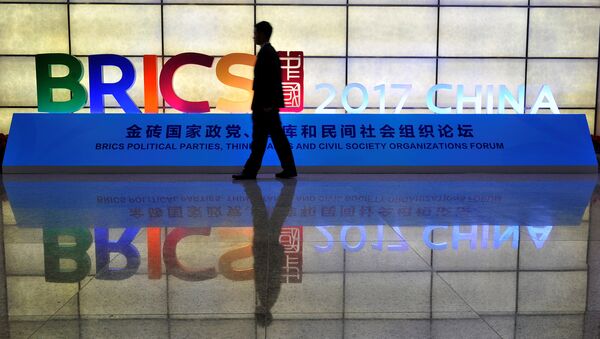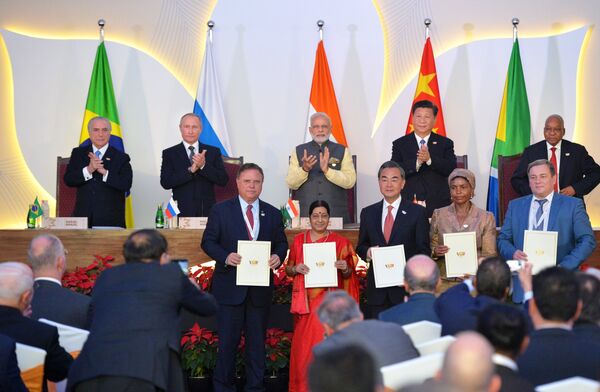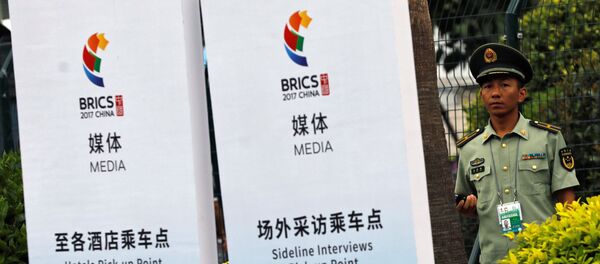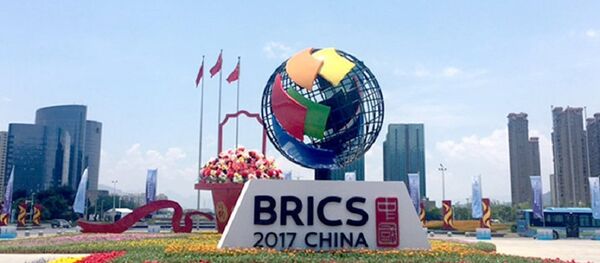On September 3-5, China's southeastern city of Xiamen is hosting the 9th Summit of BRICS countries. The meeting will be also attended by non-member countries, such as Egypt, Mexico, Thailand, Guinea and Tajikistan.
Gevorg Mirzayan, associate professor at the Department of Political Sciences at the Finance University of the Russian Government and RIA Novosti contributor, reviews how this format can become a platform for making key political and economic decisions, which will have a constructive influence on the world order, and how the bloc can replace the US in the role of a global hegemon.

Is the Throne Vacant?
"It was just that simple before: the regulation of the global processes (well or badly, that is another issue) has been controlled by the collective West. However it is not that simple any longer. First, the collective West has ceased to exist: serious contradictions in the national interests and the focuses on the global processes have led to a discord (and some say to a split) between the US and Western Europe," Mirzayan opined in his recent article for RIA Novosti.
He further elaborated that Germany has already notified that it will not only go its own way, but will file lawsuits into international courts against the US in case it deems to sanction German companies for their trade with Russia.
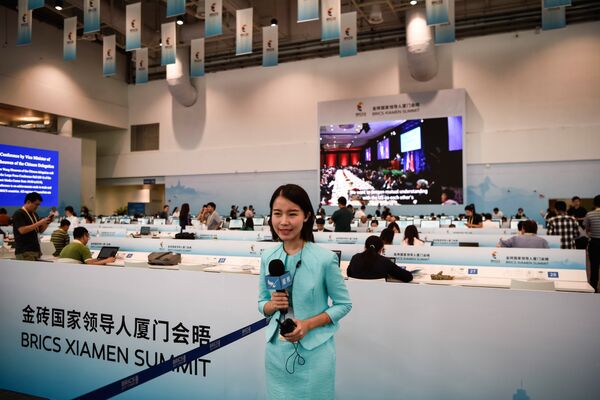
Second, he says, key Western country, the US, is no longer able to effectively rule the global processes. American elites, deeply engaged in their internal political struggle and their crusade against their own President, either ignore the global processes, or view them extremely frivolously, or simply use them for solution of their internal political issues, such as muscle-flexing with North Korea or anti-Russian sanctions.
"The weakening of the US creates a vacuum of power. And as one single country is simply unable to replace the US on the post of the world "moderator", it opens alluring prospects for regional blocs and alliances. And first of all, for BRICS," the author says.
Mirzayan further reviews the advantages and disadvantages of the bloc.
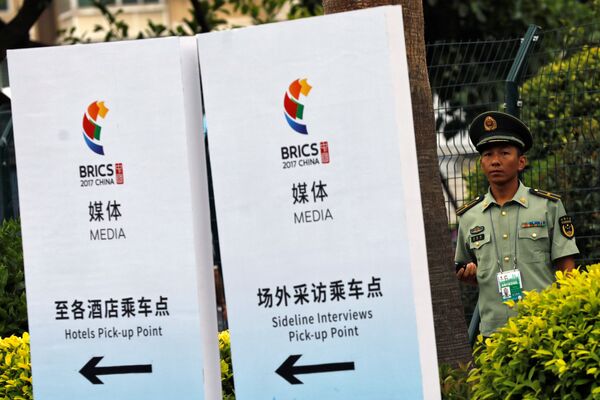
BRICS unites countries, which are too different. The bloc has never been and won't become in the nearest future an integrative group similar to NAFTA (North American Free Trade Agreement) or the Eurasian Economic Union. There too many contradictions between them.
For example, with regards to the vision of the future world, Russia and China oppose the reforms of the UN and the UN Security Council in particular, while India, Brazil and South Africa support the idea.
Moscow and Beijing oppose the US unilateral control over the global financial-political system, while the rest member states are satisfied with the US dominance.
This is not mentioning that all the member states are located geographically in various corners of the world and the scale of their economic cooperation is not high, for example, between Russia, Brazil and South Africa.
And finally, there are serious bilateral conflicts between some member states. For example India and China are balancing on the verge of war over the disputed territories in the Himalayas and are in a serious competition over the influence in South-East Asia.
The Partnership of Sovereign
However despite all the complications and its certain "sponginess", the bloc remains a key pretender for the role of an alternative center of control over global processes, Mirzayan says and provides his arguments in support.
First, the bloc unites the most powerful developing countries. Second, these are fully sovereign states, which are eager to maintain this sovereignty and have no desire to undermine the sovereignty of other countries.
The author further recalls the words of Vladimir Putin, who once said that "when certain approaches do not coincide, there is a patient and meticulous work being done on bringing them closer."
This is a prototype of a control system in a multipolar world, Mirzayan says.
"This is why BRICS is viewed as an important platform for making political and economic decisions which will have a constructive influence on the world order," he says.
The political scientist further outlines what Moscow expects from this format.
First of all, Vladimir Putin is planning to discuss with his BRICS partners fight against terrorism, corruption and narcotics. Unlike the US, which has long been dividing terrorists into "friends" or "foes" and the EU, which has long been in the grip of the so-called "political correctness" and is unable to make any decisions, Russia is going to be supported by India and China, which have been long suffering from terrorists.
"If Russia and China are able to convince other BRICS member states to support this proposal, it will come as a serious blow to the US positions in the region," Gevorg Mirzayan explains.
Economically, BRICS should become a platform for setting up global financial institutions, alternative to those controlled by the US, which Washington is using in its own, and not global, interests.
The New Development Bank, formerly referred to as the BRICS Development Bank, can serve as an example of this initiative.
Besides, the member states will work on decreasing the dominance of the US dollar as the world reserve currency. They have already agreed about partial trade in national currencies, the author concluded.

